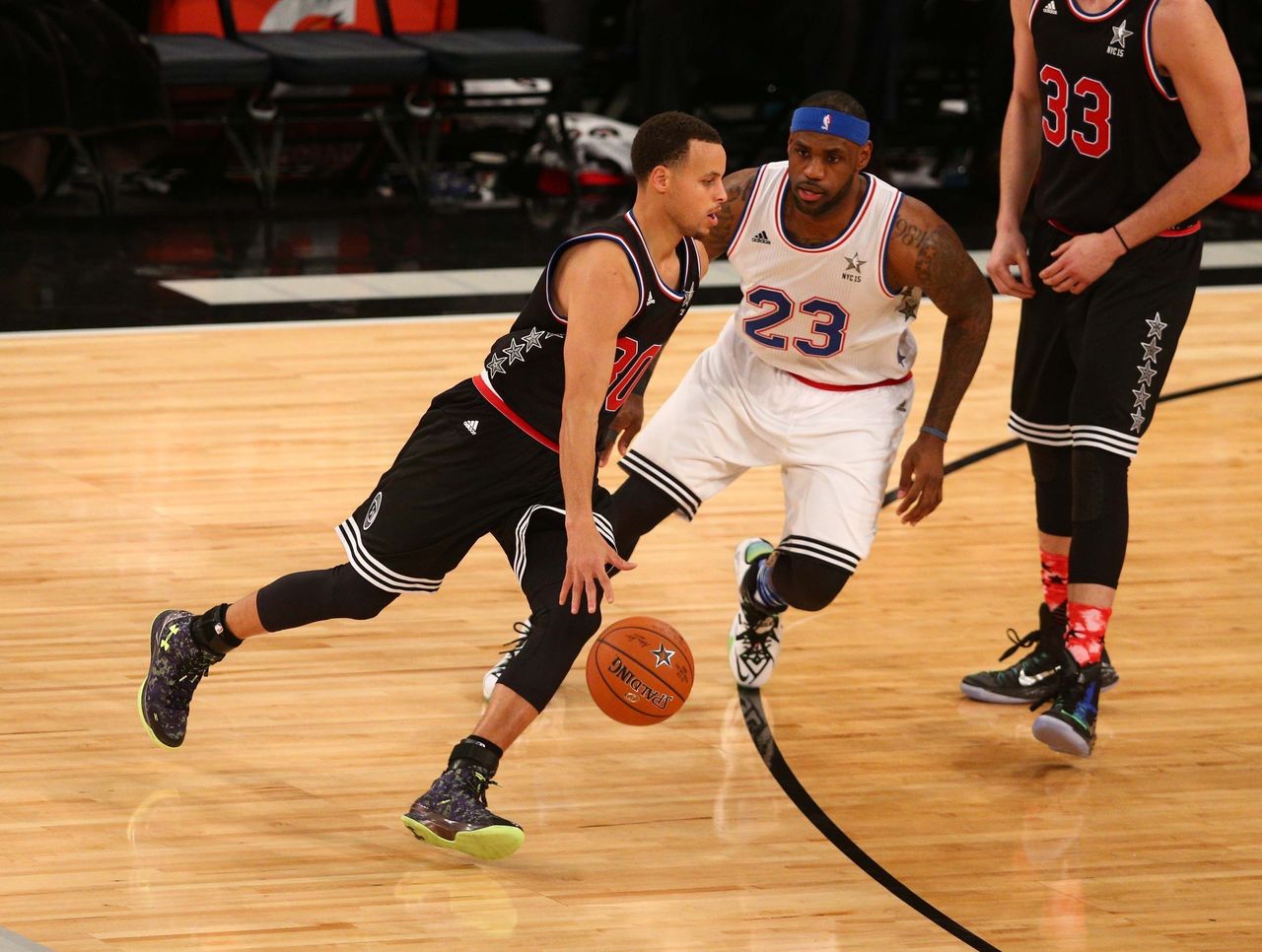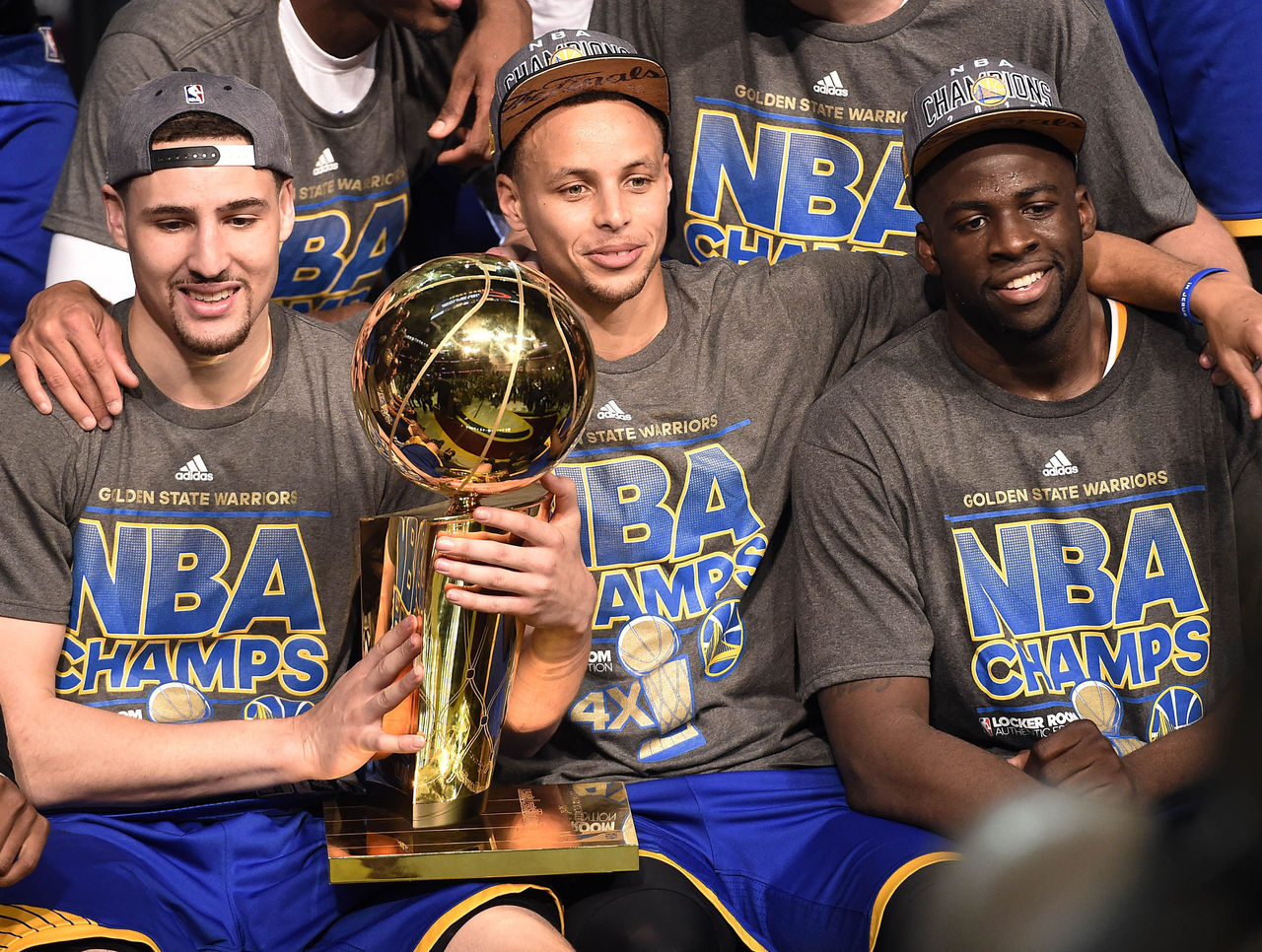Eventually, the NBA Finals will begin.
After a historically brief conference finals round and a historically protracted hiatus, after all the speculation about injuries and concussion protocol and round-the-clock treatments, the Cleveland Cavaliers will kick off the Finals against the Golden State Warriors in Oakland on Thursday.
Here are three things you need to know:
Can the Cavs punish the Warriors for going small?

The Cavaliers' biggest advantage may be their ability to dominate the boards. They lead the league in offensive and overall rebound rate in the postseason, while the Warriors have been average on the defensive glass.
Behind the ascendant big-man tandem of Tristan Thompson and Timofey Mozgov, Cleveland has consistently managed to goose its already potent offense by feasting on low-hanging, second-chance fruit.
The obvious twofold advantage: getting extra (and extra-efficient) possessions while also taking away possessions from the Warriors' scoring machine.
Both teams have found great offensive success rolling with super-small lineups - the Cavs with Thompson as their de facto center, Golden State with Draymond Green - but the Warriors are faster, and far better equipped defensively to do so. The Cavs have defended and rebounded best when pairing Thompson and Mozgov.
| Tag Team Champions | O-Reb% | Reb% | D-Rtg | Net Rating |
|---|---|---|---|---|
| Thompson-Mozgov | 32.0% | 57.4% | 92.1 | 11.4 |
| All Lineups | 28.5% | 53.8% | 98.5 | 10.1 |
If the Cavs can sustain even a shadow of that defensive efficiency while going big against the Warriors' whirring small-ball attack, they could turn their rebounding edge into a serious enough problem that Golden State is forced to adjust.
Is Cleveland's defensive transformation a mirage?

The biggest knock against the Cavaliers as a legitimate title contender was their lackluster defense - Cleveland ranked 20th in the regular season in defensive rating, allowing 104.1 points per 100 possessions.
The skepticism was rooted in precedent; the only team to recently win a title with a defense that poor was the 2000-01 Los Angeles Lakers, who didn't have an on-off switch so much as they had a big red button. (You might recall them pressing it, and the rest of the playoff field going up in a mushroom cloud of dust.)
While not the 2001 Lakers, the Cavs have undergone a comparatively dramatic defensive transformation. They rank third in the postseason with a 98.5 defensive rating, the fourth-biggest turnaround in the past 30 years on a per-possession basis.
But the only team they've played this spring with an above-average offense in the season's second half was the Atlanta Hawks, who were dinged up beyond recognition. Paul Millsap's lingering shoulder injury and Kyle Korver's absence from the final two games contributed to the Hawks shooting a putrid 23.4 percent from 3-point range, after hitting at 38 percent during the season.
Atlanta was still getting its licks from deep, averaging 27.8 3-point attempts in the series - more than they averaged during the season, owing partly to Cleveland dropping back, going under screens, and containing penetration. Daring your opponent to beat you with jump shots is hardly a viable defensive strategy against the gunslinging Warriors.
Who'll be harder to contain: Steph or LeBron?

Ask LeBron James and he'll tell you there's no hope for either side.
LeBron when asked how do you slow down Steph Curry: "The same way you slow me down ... You can't."
— Dave McMenamin (@mcten) May 29, 2015
Both teams will game plan like hell to limit the damage the other's transcendent superstar can do. And the Cavs have more at stake because they need LeBron a lot more than the Warriors need Stephen Curry.
LeBron leads the NBA in playoff usage rate (36.4), with Curry ranking a distant second (31.8). While Curry's handle and otherworldly shooting trigger the chain reactions that ignite the Warriors' offense, things don't flow through him as inexorably as they do through LeBron, who initiates almost everything, whether he's receiving the ball in the post or playing ball-handler in the pick-and-roll.
Even if LeBron's as good as he's ever been, it may not be enough.
Kyrie Irving admitted he's unlikely to be close to 100 percent all series, and aside from those bruisers hitting the offensive glass, the Cavs don't have any other reliable means of creating scoring.
The Warriors can afford to key in on LeBron in ways Cleveland can't afford to with Curry. Irving playing on a gimpy knee disqualifies him as an option guarding Curry, and Cleveland's best option is probably Iman Shumpert. They can give superpest Matthew Dellavedova the assignment for short stretches, but Dellavedova has neither the length nor the foot speed to disrupt Curry's shooting rhythm.
The Warriors can defend LeBron with Green, Andre Iguodala, Harrison Barnes, or even Klay Thompson. Any of those would have his hands full trying to guard LeBron one-on-one, but the Warriors' wings, across the board, have the speed, length, and wherewithal to help and recover as needed, while their amorphous small lineups allow them to switch aggressively on screens.
LeBron may be able to outperform Curry; he's LeBron, after all. To actually carry the Cavs to an upset win, though, he'll have to be heroic.
Projected Starting Lineups
| Position | Cavaliers | Warriors |
|---|---|---|
| PG | Kyrie Irving | Steph Curry |
| SG | Iman Shumpert | Klay Thompson |
| SF | LeBron James | Harrison Barnes |
| PF | Tristan Thompson | Draymond Green |
| C | Timofey Mozgov | Andrew Bogut |
Series Outlook
| GAME | LOCATION | Day | TIME (ET) | NETWORK |
|---|---|---|---|---|
| 1 | Golden State | Thu. June 4 | 9 p.m. | ABC |
| 2 | Golden State | Sun. June 7 | 8 p.m. | ABC |
| 3 | Cleveland | Tue. June 9 | 9 p.m. | ABC |
| 4 | Cleveland | Thu. June 11 | 9 p.m. | ABC |
| 5* | Golden State | Sun. June 14 | 8 p.m. | ABC |
| 6* | Cleveland | Tues. June 16 | 9 p.m. | ABC |
| 7* | Golden State | Fri. June 19 | 9 p.m. | ABC |
* If necessary
